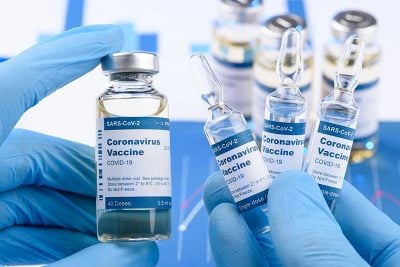Pfizer, AstraZeneca COVID Vaccines Probed in Europe after Reports of Heart Inflammation, Rare Nerve Disorder

All Global Research articles can be read in 51 languages by activating the “Translate Website” drop down menu on the top banner of our home page (Desktop version).
Visit and follow us on Instagram at @crg_globalresearch.
***
Europe’s drug regulator says it’s evaluating an assortment of potential side effects following inoculation with leading COVID-19 vaccines, including heart inflammation, facial swelling and a rare nerve-degenerating disorder. Yet in most circumstances, it’s not clear whether the vaccines are to blame.
In AstraZeneca’s case, the European Medicines Agency’s safety committee, known as PRAC for short, said it’s examining reports of Guillain-Barre syndrome (GBS) among people who received the drugmaker’s COVID-19 vaccine, according to a report released on Friday. The agency is tracking the data for all coronavirus shots as part of its routine safety procedures.
GBS syndrome is a rare disorder that causes nerve inflammation and can result in pain, numbness, muscle weakness and difficulty walking. GBS was previously identified by regulators as a potential adverse side effect that required monitoring following AstraZeneca’s jab, the EMA said. The regulator asked AstraZeneca to provide more detailed data and an analysis of all reported GBS cases for its next safety report, which are required on a monthly basis.
Concerns of rare but serious blood clots among AstraZeneca vaccine recipients have beset Europe’s vaccine rollout for months. In early April, the EMA said the unusual blood clots with low blood platelets should be listed as very rare side effect for the company’s vaccine, marketed as Vaxzevria.
Additionally, the committee said Friday that it would update its warning for Johnson & Johnson’s vaccine, which has also faced blood clotting issues. The warning will advise patients who have been diagnosed with thrombocytopenia, or low blood platelets, within three weeks of vaccination to be “actively investigated” for blood clot formations.
Despite close monitoring, the EMA committee said it hasn’t found similar blood clot cases among the mRNA shots from Pfizer and Moderna. However, those companies may have some of their own potential safety concerns that require additional observation, the committee said.
PRAC recommended adding a new side effect to Pfizer’s product information for people with dermal fillers, which are soft, gel-like substances injected under the skin. The committee now believes there’s “at least a reasonable possibility” the vaccine causes facial swelling in people with the fillers.
Additionally, the committee said it’s aware of cases of myocarditis, or inflammation of the heart muscle, as well as pericarditis, inflammation of the membrane around the heart, following vaccination with Pfizer’s shot, known as Comirnaty.
At the moment, regulators don’t see an indication that the vaccine caused these cases. As a precaution, the committee asked Pfizer to present additional data, including an analysis of the events according to age and gender, and will “consider if any other regulatory action is needed.” Since Moderna also uses mRNA technology for its vaccine, the committee asked the mRNA biotech to monitor for similar cases.
This isn’t the first time officials have probed the potential risk of heart inflammation following COVID-19 vaccination. Late last month, CDC Director Dr. Rochelle Walensky said the agency hasn’t found a link between the shots and the myocarditis cases.
Those comments followed the news that the U.S. Department of Defense would investigate 14 cases of heart inflammation among people who were vaccinated through the military’s health services. Israel also said it would examine a small number of cases, Reuters reported.
“We have not seen a signal and we’ve actually looked intentionally for the signal in the over 200 million doses we’ve given,” Walensky said during a press briefing in April.
*
Note to readers: Please click the share buttons above or below. Follow us on Instagram, @crg_globalresearch. Forward this article to your email lists. Crosspost on your blog site, internet forums. etc.
Featured image is from FiercePharma

